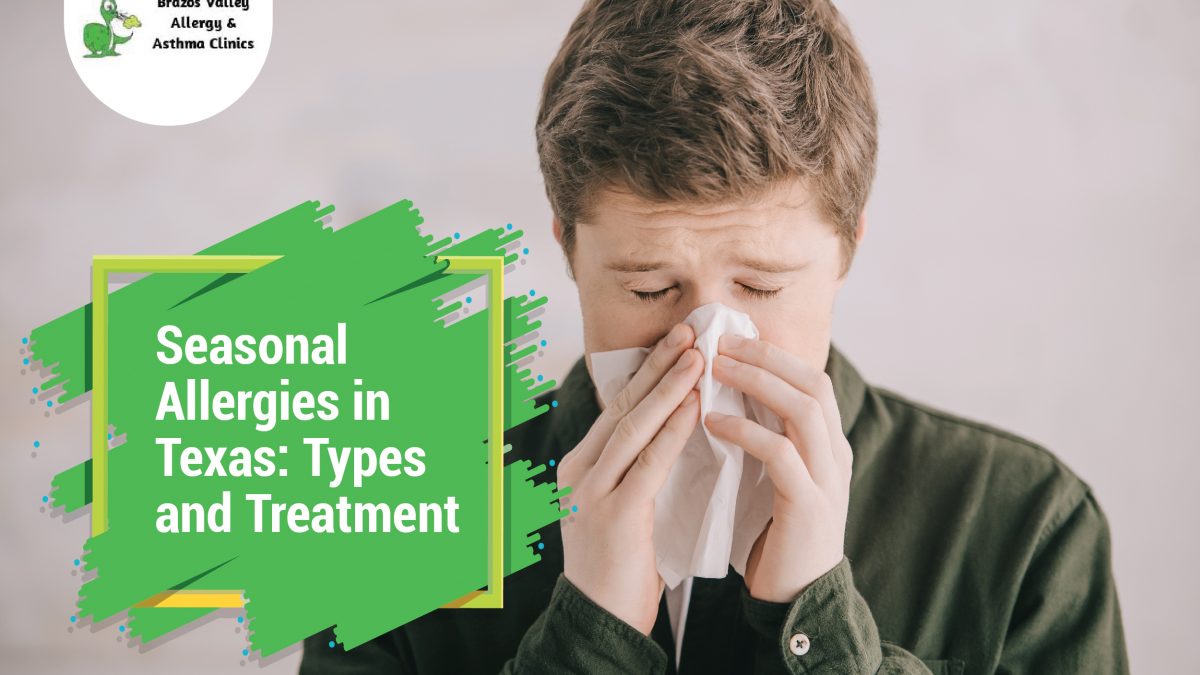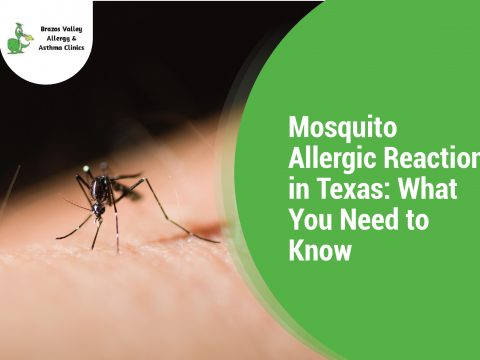- 979-485-9287
- office@bvallergy.com
-
 979-251-7804
979-251-7804
Seasonal Allergies in Texas: Types and Treatment

Tips for Managing Your Asthma in the Summer
May 18, 2021
Ragweed Allergy: Everything You Need to Know
July 9, 2021Overview
As the weather changes, the allergens in the environment change as well. The seasons bring about different allergies that trigger allergic reactions from both children and adults. There are a few types of allergies; each type has its own set of symptoms, which can range from mild to life-threatening. Here are some of the allergies you should look out for:
Mold allergies
Molds are extremely common both indoors and outdoors. Breathing mold spores is normal, but some people have an allergic reaction or asthma symptoms when they are exposed to it. Patients who have mold allergies usually experience symptoms such as sneezing, watery eyes, runny nose, nasal congestion, itchy nose, mouth, and lips. Furthermore, mold allergies can trigger asthma attacks in those who are susceptible to them.
Insect Sting Allergies
When the weather gets warmer, insect bites and stings increase. Insect stings are one of the most common allergens during the summer months. When a person with a bee allergy is stung, their immune system adversely reacts to the protein in the bee venom, thus experiencing an allergic reaction. Precautions should be taken to avoid exposure to bees. Being mindful of bee stings will keep you healthy this summer.
Grass Pollen Allergies
Grass pollen allergies are very common. The grass allergy season in Texas usually begins in early March and continues until mid-October. Because grasses are everywhere, you are more likely to inhale grass pollen when you go outside. Thus, if you have grass pollen allergies, it is important that you adequately protect yourself when going out.
Oak Pollen Allergy
During the spring, oak trees send pollen into the air. Oak pollen is mildly allergic compared to other types of pollen. However, it stays in the air for longer periods. If you have an oak pollen allergy and you have to run errands outside, the first thing you can do is to take allergy medication and save outside activities when pollen levels are low.
Cedar Allergy
Mountain cedar is one of the most potent allergens in Central Texas. This season typically lasts from December to February. And because cedar pollen can easily be swept by the wind, many people find themselves sneezing and coughing because of this allergen. Cedar flares every year, and for some Texan residents, they just can’t avoid it.
Treatment for Seasonal Allergies
The least invasive treatment method for your allergies is avoiding the allergen that triggers your allergic reaction. If it seems impossible to avoid them, there are several allergy treatments available for seasonal allergies. The following are some of these:
Medication
People who have allergies use over-the-counter medications and nasal sprays to relieve allergy symptoms. Consequently, antihistamines are often the go-to drug for treating allergy symptoms. Doctors give nasal corticosteroids to reduce inflammation of the nasal lining associated with allergies.
Allergy Drops
Allergy drops are a long-term treatment that is more effective than over-the-counter medicines. This is because they combat the cause of allergies rather than the symptoms. This decreases symptoms by increasing the body’s immunity. Allergy drops are an important new treatment option for patients who are constantly refilling over-the-counter allergy medications.
Immunotherapy
People who suffer from allergies that don’t respond to over-the-counter medications may find relief from immunotherapy. Through this, the body builds tolerance by introducing small amounts of the allergen into the body. Immunotherapy is usually a long-term treatment for seasonal, indoor, and insect sting allergies.
Conclusion
Protect yourself and your loved ones by taking preventative measures against Texas seasonal allergies. If you have seasonal allergies and over-the-counter medications are not cutting it anymore, you can contact an allergist for him to recommend some other treatment options for you. Dr. Paul Jantzi is a board-certified allergist and immunologist, providing allergy treatments in Texas. Schedule a meeting with him and let him help you with all of your allergy and asthma-related issues.




